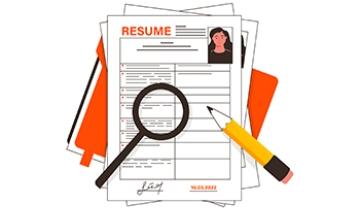Under President Biden’s administration immigration compliance was more relaxed than under President Trump’s first administration. However, aligning with President-Elect Trump’s campaign focus on immigration compliance, employers are likely to see an increase in compliance activities, including I-9 audits and other enforcement actions. Numerous legal firms specializing in immigration have published articles expressing their opinions on what to expect. They have identified some common themes which are covered below.
Increased Enforcement
The legal community has been advising employers to be prepared for increased enforcement, via Form I-9 and E-Verify audits and workplace visits by the Departments of Homeland Security (DHS), Homeland Security Investigations (HSI), the U.S. Immigrations and Customs Enforcement (ICE), or other agencies. The initial efforts will likely focus on industries that have been known to employ or who are suspected of employing a high percentage of unlawful workers (e.g., manufacturing, food processing, construction, agriculture, etc.).
Employers should take steps in preparation for an agency audit. An I-9 self-audit is recommended as a first step to gain compliance and mitigate potential fines. Contact MRA if you are looking for assistance with your self-audit. A plan should also be developed and communicated to applicable employees as to the appropriate steps to take should an investigator arrive at the workplace. Information regarding the Form I-9 inspection process can be found here.
Employment and Immigration
In keeping with the tenor of Trump’s first administration, employers may face more difficulty sponsoring, hiring, and retaining employees requiring work visas. It appears that all types of work visas will face additional scrutiny through rigorous vetting practices. Employers utilizing H-1B visas could expect higher prevailing wage requirements, narrowed job qualifications (making meeting requirements more difficult), a higher percentage of Requests for Evidence (RFEs), longer processing times, and more frequent denials. Preference for current H-1B holders, whose “renewal” of their H-1B was generally guaranteed, is also expected to become limited.
The future of Deferred Action for Childhood Arrivals (DACA), an administrative relief that protects eligible immigrants who came to the United States when they were children from deportation is unknown. DACA gives undocumented immigrants: 1) protection from deportation, and 2) a work permit. Employers may lose employees working under DACA, if it is rescinded.
Another potentially impacted group will be those employed through Optional Practical Training (OPT) and OPT-STEM. These programs allow F-1 student visa holders to obtain degree-related work experience for a limited period of time while attending universities or following their graduation. Legal pundits also speculate the work authorization for spouses may also face additional scrutiny and a decline in approvals.
Employers dependent on any of these types of work authorizations should consult with their legal counsel to develop a plan on how to best navigate these changes, which may include challenges in finding qualified candidates. As it stands now, employers can expect to see the issuing of Executive Orders related to immigration in the first few months of Trump’s administration. MRA will continue to monitor and provide updates as they become available.







